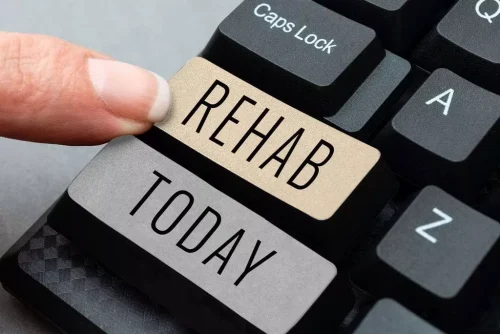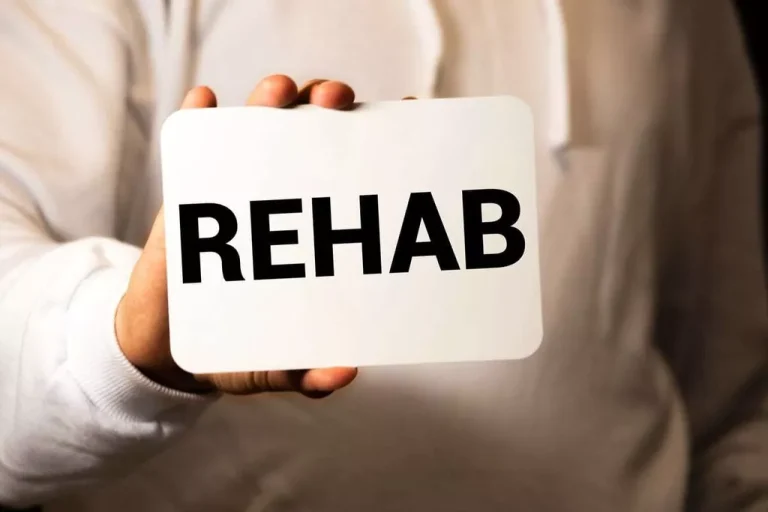
Join our supportive sober community where each day becomes a step towards personal growth and lasting positive change. Hypertension is common, and some doctors also prescribe beta blockers during withdrawal. If you are ever unsure whether your loved one needs medical attention, err on the side of caution and seek help. One of the most important things you can do is simply be there for your loved one during this difficult time. Just by being present and available, you can provide them with great support.
Mood Swings, Brain Fog, and Anxiety
- “Throat still hurts a bit from the vomiting, still sweating and clammy, can’t sleep, have a bit of heartburn/indigestion. Visiting the toilet is becoming less frequent. Even managed to get a small meal in.”
- Alcoholic patients are at risk for relapse for numerous reasons, including inadequate treatment of their withdrawal symptoms, continued expectations of the rewarding effects of alcohol, and feelings of distress in the absence of alcohol.
- “My worst withdrawal symptom is that my brain does not seem to work very well. Lots of spelling errors and poor fine-motor skills. I will not even go into the insomnia.”
- Missing your usual morning cup of coffee, for example, might result in symptoms of caffeine withdrawal such as fatigue, headache, and irritability.
We’ll be able to tell you if your insurance provider is in network with an American Addiction Centers treatment facility. Ethanol is the key ingredient in many alcoholic beverages, such as beer, wine, and spirits. As a depressant, alcohol can suppress the central nervous system (CNS), making the body reliant on it with prolonged exposure. It does this by reducing alcohol withdrawal the excitatory portion of the CNS called the glutamate receptors while increasing the inhibitory portion called the gamma-aminobutyric acid receptors. Withdrawal is different for everyone; there really is no “normal” and it can be hard to predict an individual person’s experience.
Timeline of Alcohol Withdrawal Symptoms
“Feeling much better. Very slight discomfort in the chest occasionally. No sweating. Disturbed sleep? Yes. But I guess in a few days, I should be fine.” “Lightheaded, dizzy, no sleep, pale, weak, and it feels like electric shocks shoot through my body every so often. Crazy anxiety.” “Feeling better. Best night’s sleep in some time. Weird dreams but not too nasty and scary. Feel a little weak, but I did avoid food for about four days. Very reflective still.” “I quit two days ago and have just had the unfortunate experience of a seizure, as well as many visual and tactile hallucinations. Massive sweats and tremors.” “I had to miss work again because I didn’t sleep again. I have had sweat pouring off me all day, I’m shaking so bad, and my chest is hurting. I know if I drink it will go away, but then nothing gets better, I feel like I’m going to die right now.”
What are alcohol withdrawal symptoms?

Like alcohol, these agents enhance the effect of the neurotransmitter GABA on the brain. Because of their similar effects, benzodiazepines and alcohol are cross-tolerant—in other words, a person who is tolerant to alcohol also is tolerant to benzodiazepines. Cross-tolerance also implies that when a person experiences a deficiency of one agent (e.g., alcohol during withdrawal), the other agent (e.g., a benzodiazepine) can serve as a substitute, thereby easing the withdrawal symptoms. Based on the patient’s score on the CIWA–Ar, the physician determines the appropriate treatment (see table). For all patients, especially those experiencing severe withdrawal symptoms, proven benefits of treatment include amelioration of symptoms, prevention of both seizures and DT’s, and treatment of DT’s. Treatment also may prevent increasing severity of withdrawal during subsequent withdrawal episodes and encourage the patient to enter alcoholism treatment for relapse prevention.
Alcohol Withdrawal Symptoms
- Alcohol consumption spans a spectrum ranging from low risk to severe alcohol use disorder (AUD).
- This is considered a medical emergency because it can lead to permanent brain damage.
- One of the most important things you can do is simply be there for your loved one during this difficult time.
- They should also make sure you attend your counseling appointments and visit the doctor regularly for any routine blood tests that may be ordered.
- Alcohol withdrawal symptoms can be greatly reduced or even eliminated with proper medical care.
AWS is more common in adults, but children and teenagers who drink excessively may also experience the symptoms. You’re also at risk for AWS if you’ve previously had withdrawal symptoms or needed medical detox for a drinking problem. Alcohol withdrawal syndrome (AWS can cause a range of symptoms, from mild anxiety and fatigue to severe hallucinations and seizures. In extreme cases, it can be life threatening. During alcohol detox, medication can ease your discomfort and prevent symptoms from worsening.
Clinical Features of Alcohol Withdrawal

“I feel great! A few cravings every day, but I tell myself how bad it was to detox cold turkey, and how good I feel now. I am actually getting things done in my life that I was putting off because I was always drunk.” “My worst withdrawal symptom is that my brain does not seem to work very well. Lots of spelling errors and poor fine-motor skills. I will not even go into the insomnia.” “The recent nine months’ sobriety has done great good for my body. That said, I hope never to forget how much damage I felt in four days of drink.”
- If physical symptoms continue after 11 days of abstinence, seek medical attention.
- “I’m feeling so much better about my life and my actions. I love life without alcohol. Every day that passes, I realize the cravings are fewer and farther between. I’m not so tired all the time.”
- Symptoms outside of the anticipated withdrawal period or resumption of alcohol use also warrants referral to an addiction specialist or inpatient treatment program.
Because denial is common, you may feel like you don’t have a problem with drinking. You might not recognize how much you drink or how many problems in your life are related to alcohol use. Listen to relatives, friends or co-workers when they ask you to examine your drinking habits or to seek help. Consider talking with someone who has had a problem with drinking but has stopped.
Withdrawal Symptoms by Drug Type

This can involve listening to them, being a shoulder to cry on, and providing a comforting presence. Sometimes, just having someone there who cares can make all the difference. It can be difficult for both of you when your loved one is going through withdrawal. Withdrawal can be physically and emotionally taxing, and your loved one will need all the support they can get.
A counselor can advise https://ecosoberhouse.com/ on ways to cope with the mental and emotional aspects of withdrawal. A person with delirium tremens needs to be hospitalized until the symptoms can be controlled. While these symptoms are more severe than Stage 1, they are not life-threatening.
- “Depression is gone, anxiety gone, and all else gone. Didn’t sleep great last night, but tonight will be good.”
- Alcohol withdrawal symptoms begin to ease for some and just begin to get intense for others.
- These substances act on your brain’s reward system, triggering the release of chemicals.
- Detox can be done at a clinic, hospital, or rehabilitation center and may include medications to manage withdrawal and help to reduce symptoms.
- People who have previously gone through withdrawal, have a substance use disorder, or have a mental health condition are also at an increased risk.
- Those persistent symptoms might have some other cause than alcohol withdrawal.
If you experience PAWS, your doctor may prescribe gabapentin to help you manage your symptoms. People in recovery continue to report the benefits of not drinking alcohol after 13 days of abstinence. They also report feeling calmer and better able to cope with some of their remaining symptoms. After 12 days of abstinence from alcohol, most people who quit have very few withdrawal symptoms. Day six of no alcohol consumption usually brings some relief for the most severe withdrawal symptoms, but some nagging symptoms can persist. Patients presenting with alcohol withdrawal syndrome should receive thiamine and folate supplementation as they are often nutritionally deficient.


